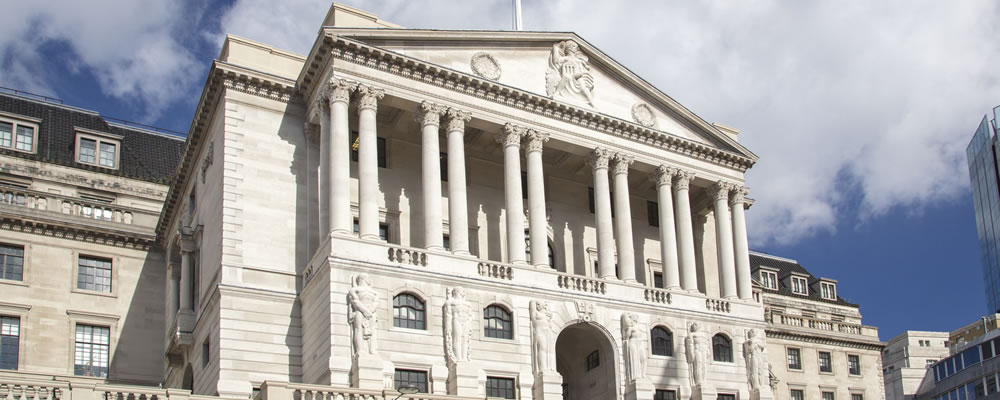The Pound has dropped by -0.4% against the Euro today, following cautious announcements from the Bank of England (BoE).
- GBP EUR drops to 1.1850 – EUR GBP rate rises to 0.8440
- Pound slides on dovish BoE news – Lower growth and higher inflation forecast in 2017
- Euro advances against soft Sterling – Cautious optimism in ECB bulletin
- UK inflation, jobs and sales stats next week – German GDP out on Friday
The much-awaited BoE interest rate decision resulted in the predicted freeze at 0.25%. Pound traders were disappointed by the distribution of policymakers, with only Kristin Forbes voting for a rate hike. Forbes is leaving the BoE in June, so this hawkishness was seen as ‘too little too late’.
The BoE’s inflation report was more interesting, containing a prediction of inflation ‘peaking a little below 3% in the fourth quarter’. While the BoE did hint at raising interest rates sooner than expected, the overall message was a gloomy one. With inflation forecast to rise higher than wage growth, real incomes could face a significant squeeze in 2017.
On growth, the BoE has lowered its 2017 forecast to 1.9%, but raised its 2018 forecast from 1.6% to 1.7%.
Eurozone central bank news has been more supportive, with a European Central Bank (ECB) release raising Euro demand.
The ECB bulletin for May was broadly positive, stating that;
‘Incoming data since early March confirms that the cyclical recovery of the Euro area economy is becoming increasingly solid and that downside risks have further diminished’.
There were some words of caution in the bulletin, but for the most part the message was that ‘slow and steady’ economic growth was likely to continue.
As the dust from today’s rate decision continues to settle, economists are already looking to next week’s UK data releases. These will be spread over Tuesday, Wednesday and Thursday, covering inflation, jobs and sales respectively.
The high-impact inflation rate for April could influence the Pound throughout the week, given that it directly ties into today’s BoE event.
Annual UK inflation was 2.3% in April; if this rises further above the BoE’s 2% target then the Pound could rally on greater interest rate hike odds.
Wednesday will bring March’s unemployment rate and earnings figures, along with a claims measure for April. The earnings result is not expected to directly impact the Pound, but slowing wage growth and rising inflation could cause a wage squeeze. This would eventually limit UK retail activity, lowering GBP demand.
Thursday’s contribution will be retail sales results for April. Monthly figures dropped in March, so rising sales could go some way to restore confidence in Sterling.
The week’s last major Eurozone news will be Friday’s German GDP estimates for the first quarter.
Forecasts are positive on the quarter and the year, so the Euro could rally on such strong initial GDP growth figures.
Current Interbank GBP EUR Exchange Rates
At the time of writing, the Pound to Euro (GBP EUR) exchange rate was trading down at 1.1855 and the Euro to Pound (EUR GBP) exchange rate was trading up at 0.8434.



